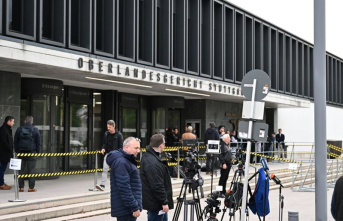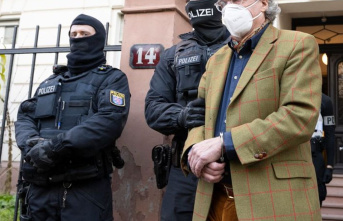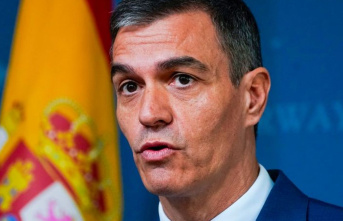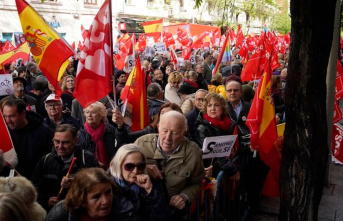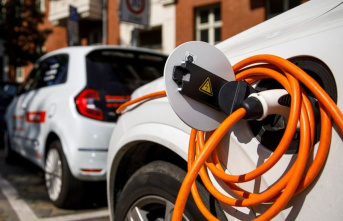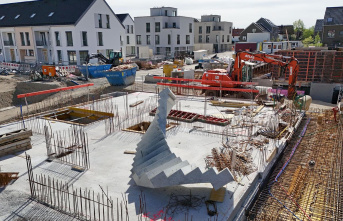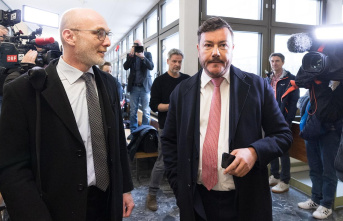Who woke up today in Poland, experienced a divided country. It had been also before going to Sleep, but now it's clear: Poland is drifting apart more and more. The Polish Stand-Up Comedian Abelard Giza suggested as early as 2015, to share Poland, literally, in a conservative Pope-Poland, and a liberal "Poland-GmbH". Who was then in the mood to Laugh, the more is likely to happen, this Vision is not so far-fetched, because to be dwindling, the opportunities to overcome these divisions still seem to be.
High turnoutAccording to the latest data of the state election Commission, approximately 68 percent of poles cast their ballots - as many as never before. Political scientist Marek Migalski sees, however, no evidence for a good level of democracy. Rather, he sees the high turnout of his countrymen "a indicator of a serious social conflict". He writes on Twitter, in Poland you have to deal with the strong turnout, such as with "fever", the signal is a disease in the social fabric.
Land contra town ofIn the five largest cities in the country, the liberal Warsaw mayor, Rafał Trzaskowski won. His success in the Polish metropolises was reflected in the results of the counties and districts. In the district (Voivodeship) little Poland with Cracow, the conservative incumbent got Andrzej Duda almost 60 percent. In the city itself, more than 60 percent chose the liberal candidate. The opposition of city and country played in the election campaign, a role. Trzaskowskis biggest challenge was to convince the people in the country. But this proved to be difficult to reach. Political scientist Anna Materska-Sosnowska sees as the crucial factors for the public and Pro-government media, as well as the influence of the Church. She stresses that it is only the rural population, but also to the Poorest and to people with simple or no educational qualifications. The Duda-bearing have come to the people during the election campaign in a scary situation with projections, such as: "The Germans, Homosexuals, and Trzaskowski takes away the people all of the social services. How are you supposed to compete with that?" asks the scientist.
The re-elected President Duda had spoken in the election campaign of a policy, "the 'Warsaw salon` the bags full of stuffs". As he later explained, he meant the policy of the party "civic platform". Trzaskowski is one of its Vice-Chairman. For Duda, this is a policy that "respects nothing and nobody, and certainly not to ordinary people. The best example of this is the increase in the retirement age," said Duda in the beginning of July, a private TV channel. "The elites" should not you prefer, but on the Rest of society to look, so the Tenor of his campaign. If the country's population is expected to decide would be the victory Dudas much more clearly, because about 63 percent of the rural population gave their votes to the incumbent President who comes from the right-conservative party PiS (law and justice). So, while in the country, only 36 per cent voted for Trzaskowski, it was in large cities (with more than 500 000 inhabitants), about 65 percent. Duda brought it there only a third of the votes.
In the East, nothing NewThe choice of analyses also show how, once again, the West part of Poland, liberal, voted for Rafał Trzaskowski, the East chose, however, consistently incumbent Andrzej Duda.
added Together Duda won in only six out of 16 provinces, but in four of them he got about 60 percent. In the district of Podkarpackie, in southeastern Poland, supported him even more than 70 percent of the voters.
juniors contra seniorsA glance at the distribution of votes makes other divisions more visible. Rafał Trzaskowski convinced more than 63 percent of the youngest voters, including those that have been allowed to make for the first Time, your voice (the 18-to 29 year-old). Only a good third of these voters voted for Duda. Observers say now that the right-hand bearing must find a way to convince young Poland, which constitutes, however, a huge challenge, experts say. Almost exactly the opposite of the results from the Polish seniors. In the group of 60+ seem to be about 64 percent to be satisfied with Dudas policy line, just 36 percent would prefer to have seen Trzaskowski in its place. Overall, the trend is across all age groups: the older the voters, the more they gave their voice of Duda. His political opponents won in all age groups up to 50.
Where wandered the votes of other candidates?the question is interesting, where are the voices of those who go in first ballot other favorites as Duda and Trzaskowski remained until the end. Particularly, we looked at the voters of the independent candidate Szymon Hołownia, who was in the first choice, with almost 14 percent of the votes of a third party. His followers chose yesterday to 85 percent Trzaskowski.
Less clear, it was the supporters of the candidate of the extreme right "Confederation", which went their separate ways: 52% voted for Duda, the other, shorter half Trzaskowski.
Polish flags and EuropeIn a radio interview with Andrzej Zybertowicz, a sociologist and adviser to the re-elected President said that he was shocked that about half of his country had voted in favour of the people for a candidate, "the staff considered it appropriate, while the choice in the evening with a Polish Flag to appear".
This suggested, "the fact that Trzaskowski, Poland was indifferent". It was not him went the Vision of the role of Poland in Europe, but a "departure from Polishness", he claimed. Trzaskowski have stripped his opinion, "the skin of Patriotism".
in terms of the number of poles-flags could give it to the evening performance of the Duda-camp no doubt as to the commitment to the "Polishness", because the images showed a massive sea of flags. For those flags are particularly important, a proof of their Unity. The other is more of a Symbol for the division of the country, exists in many forms. And in it is a Consensus after all.
author: Magdalena Gwozdz-Pallokat
*The article "city vs. country - how it has chosen Poland?", published by Deutsche Welle. Contact with the executives here.
Deutsche Welle Date Of Update: 13 July 2020, 13:27

